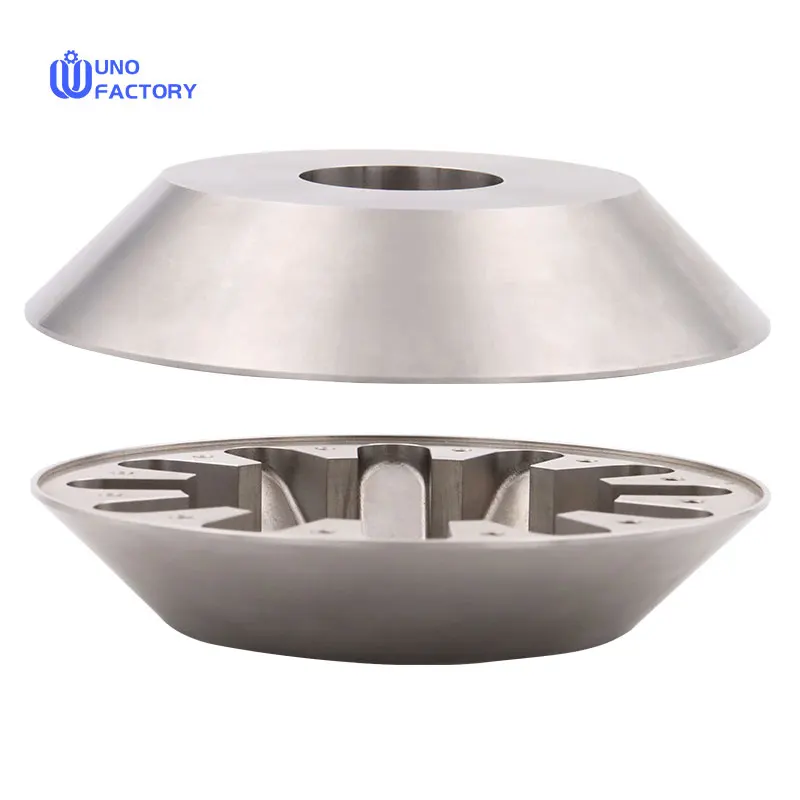Time to read: 6 min

As the automotive industry strides towards greater fuel efficiency and sustainability, die casting has emerged as a pivotal manufacturing technique. This article delves into the significance of die casting in creating lightweight, robust automotive parts, and explores the materials and processes that are shaping the future of car production.
The automotive landscape is rapidly evolving, with a focus on enhancing fuel efficiency and reducing emissions. Die casting has become an indispensable method for manufacturing high-quality, lightweight automotive components that contribute to these goals without sacrificing strength or performance.
Why Die Casting is Gaining Momentum in the Automotive Sector
The demand for lighter and more fuel-efficient vehicles has driven the automotive industry to adopt die casting on a larger scale. Here’s why this method is so popular:
Production of Lightweight Components
Rising fuel economy standards have made it imperative for manufacturers to produce vehicles that are lighter without compromising on durability. Die casting, particularly with aluminum, has become a go-to solution for creating engine parts, wheels, and other components that are lighter yet strong.
Enhanced Automation and Design Flexibility
Advanced technology has made die casting more automated and flexible. This has led to the efficient production of complex, intricately designed automotive parts, contributing to the industry's ability to innovate and meet diverse design requirements.
Sustainability and Recyclability
Die casting for automotive parts promotes the creation of eco-friendly components. The materials used, such as aluminum and magnesium, are not only sustainable but also recyclable, reducing the industry's environmental impact.
Common Materials for Die Casting in the Automotive Industry
The choice of material in die casting plays a crucial role in determining the part's performance. Here are the most commonly used materials in the automotive industry:
Zinc
Zinc die casting is prominent in the automotive industry, accounting for nearly 28% of its components. It offers high impact strength, ductility, and is ideal for parts like door lock housings and seat belt pulleys.
Aluminum
Aluminum is favored for its low density and high strength-to-weight ratio, making it perfect for engine parts and wheels. It contributes to the production of lighter and safer vehicles.
Magnesium
Magnesium is valued for its lightweight properties and strength, making it suitable for complex and thin-walled components. It also offers excellent heat and temperature resistance.
The Die Casting Process for Automotive Parts
Two primary die casting processes are utilized in the automotive industry: hot chamber and cold chamber die casting.
Hot Chamber Die Casting
This process is ideal for metals with lower melting points like zinc and magnesium. It offers fast production rates and minimal material waste, making it cost-effective for high-volume production.
Cold Chamber Die Casting
Best suited for aluminum alloys, this process provides exceptional dimensional accuracy and produces stronger, denser castings. It is slower due to the transfer process but results in high-quality automotive parts.
Applications of Die Casting in Automotive Manufacturing
Die casting is used to manufacture a wide range of automotive components, including engine parts, sensor housings, transmission components, and more. Its ability to produce complex shapes with high durability and aesthetic appeal makes it invaluable for the automotive industry.
Conclusion
Die casting has become a cornerstone in the automotive industry's pursuit of efficiency and sustainability. By enabling the production of lightweight, robust components, it plays a vital role in meeting the industry's evolving needs. As the market continues to grow, die casting is set to remain a key player in shaping the future of automotive manufacturing.
For more information on how die casting can enhance your automotive projects, contact Unofactory today.
Market Trends:
The automotive die casting market is projected to reach $20.31 billion by 2028, reflecting a 7.8% annual growth from 2022 to 2028. This growth is driven by increasing demand for passenger cars and the need for lightweight, eco-friendly automotive components.
Contact Unofactory for Your Die Casting Needs:
At Unofactory, we specialize in providing high-quality die casting services tailored to the automotive industry's specific requirements. With our expertise in materials and processes, we ensure that your automotive components meet the highest standards of performance and aesthetics.




